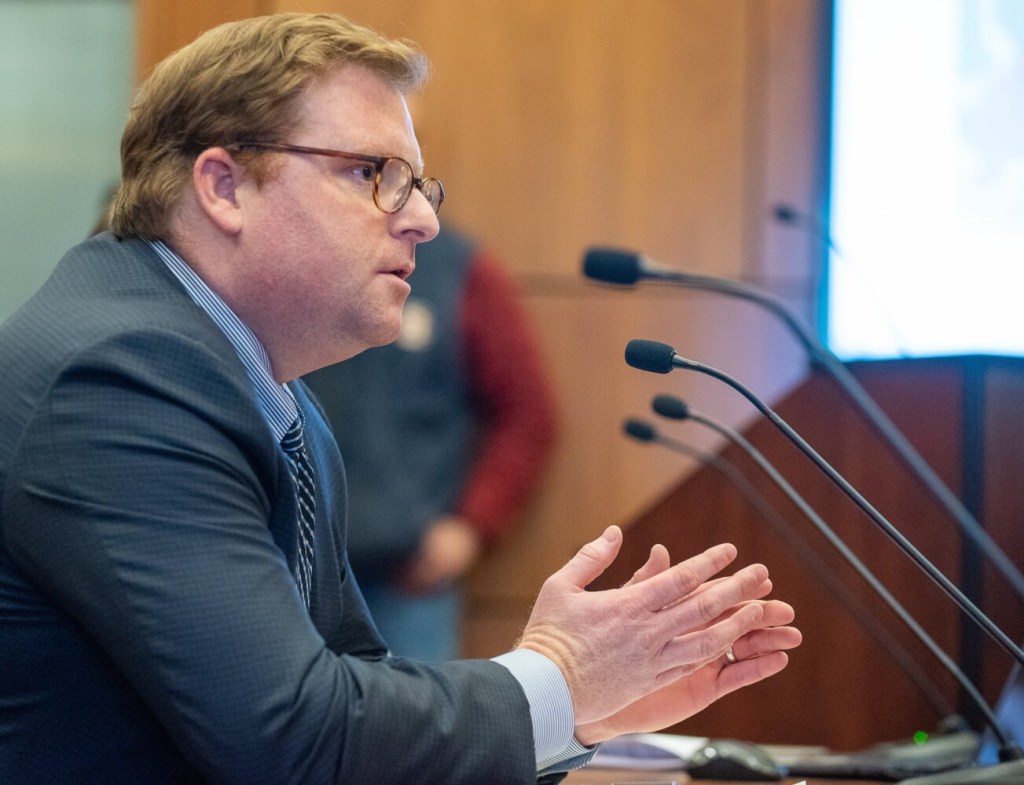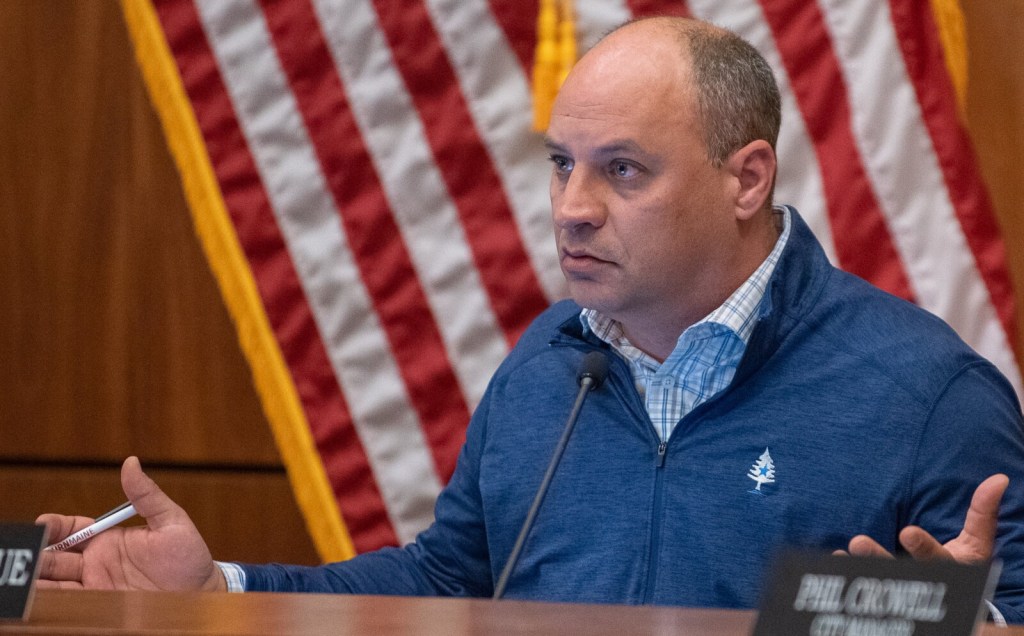AUBURN — The City Council approved a sweeping rezone of Auburn’s core residential areas Monday following weeks of public scrutiny over its potential impact to the character of existing neighborhoods.
During a second reading Monday, the council voted 5-2 to apply a type of form-based code that allows for increased housing density and commercial uses to sections of Court, Lake and Turner streets, and Park, Western and Gamage avenues.
Due to tremendous public feedback and questions over how the changes might impact the largely single-family neighborhoods, councilors initially approved an amended version of the zoning during a first reading last week — one that lowered the allowed density and restricted some uses.
However, after a legal review found complications with the amended version, the council opted to pass the original zoning type Monday.
Officials were presented with other options by the city attorney, including sending the amended version back to the Planning Board — the option recommended by staff — but ultimately did not do so.
The change impacting 1,687 acres will take effect in five days.
Several members of the public said the type of zoning, known as traditional downtown neighborhood, does not fit in with much of the proposed areas. Some, including two councilors, urged the council to send the issue back to the Planning Board to consider.
In response to the legal opinion late last week, city staff suggested the council ask the Planning Board to consider creating a different type of zoning district that mirrors the amendments initially passed by the council. They included capping the density at 14 units per acre, as well as not allowing “age-restricted retail,” which includes marijuana businesses. Several other uses were also limited by requiring a special exception by the Planning Board.

Auburn Ward 2 City Councilor Ryan Hawes makes one of several motions Monday pertaining to a zoning change. Russ Dillingham/Sun Journal
However, all of those amendments were rescinded by Councilor Ryan Hawes on Monday.
Hawes said he made the amendments last week in an attempt to be responsive to constituent concerns, but said due to the legal “roadblock,” he supported passing the original zoning proposal. He said he was both “praised and ridiculed” after offering the amendments last week.
“If we need to make so many amendments is this the right type of zoning?” questioned Councilor Rick Whiting, who voted against the proposal.
Eric Cousens, director of Planning and Permitting, said the type of zoning, also called T-4.2, was seen by staff as the one “most closely aligned” with recommendations made in the recent Comprehensive Plan update. That update calls for increasing housing density in the urban core where there are existing utilities, as well as encourage “opportunities for traditional neighborhood businesses.”
Cousens had previously said the council’s amended version of the zoning last week “were done with the intent of trying to make it more accommodating and accepting to the public feedback that they received,” and said Monday that an amended version of the zoning could make it more palatable to some areas.
Those in support of the rezoning vote Monday, including Mayor Jason Levesque, argued that as officials move ahead with rezoning efforts, the city should be consistent with the zoning districts it uses.
While many have argued that the large area in question could be several types of zoning, Levesque said the amendments made to the T-4.2 zone conflicted with the recommendations of the Comprehensive Plan.
“If you start doing this for each zone it’s going to do the opposite of what the (Comprehensive Plan) looks to do,” he said.
Levesque said the Planning Board will soon consider moving to T-4.2 in four more residential areas of the city, and that over that process, the Planning Board will be asked to compile a list of potential “adjustments” to the zoning.
Councilors Whiting and Belinda Gerry voted against the rezoning Monday. In response to Levesque’s comments, Gerry said the Comprehensive Plan “is not a blueprint. It can be adjusted to fit certain situations.”
Whiting estimated that Auburn has seen 223 new housing units since 2018, with another 198 in the pipeline.
“I’m certainly in favor of housing, but I think what we’re trying to do is excessive,” he said. “People value their neighborhoods, and feel they aren’t being listened to.”

Rob Higgins of Auburn addresses the City Council Monday night in the Council Chamber. Russ Dillingham/Sun Journal
Several people speaking during public comment said they felt they have been ignored by officials, and that the city’s own description of the zone does not fit with where they live now.
One resident said even the amended version offered by officials last week was a “laughable compromise that will do nothing to deter large development in neighborhoods.” The resident also said the lack of variation in zoning showed either “laziness on the part of city officials,” or a “lack of creativity.”
Rob Higgins, who lives on Fairview Avenue, said his family purchased a home there for a reason.
“If we wanted to be downtown, we’d have bought downtown,” he said.
A majority of the council, however, has been in favor of the rezoning since the start, largely due to the current housing crisis, which has made it very difficult for the average person to find an affordable home or rental in Auburn or the greater region.
Some comments Monday were also tied to a recent 60-unit development proposal at 555 Court St., which will soon head to the Planning Board.
While some who live nearby said it would be by far the largest development in the neighborhood, with multiunit housing that doesn’t fit the overall character, Jessica Klimek, an Auburn resident who is involved in the development proposal, disagreed.
She said if other cities in Maine can find ways to mix single-family homes and multifamily units in the same neighborhood, “it can be done, and it must be done.”
“That vacant field might look great from your view, but should you be the only one to benefit?” she said.
Levesque had previously cautioned the council against “delaying action” on the rezoning.
Last week, he said he called for the special meeting on Monday — a week earlier than would be customary — because delaying would put “a financial burden on not only developers but individual property owners” who have projects in the pipeline.
Send questions/comments to the editors.






